Did you know that your diet can make or break your heart health? In a world overflowing with fad diets and misleading trends, it’s crucial to cut through the noise and discover sustainable, heart-friendly eating habits. “Unlock Heart Health: 5 Healthy Eating Secrets You Must Know Now!” delves into the transformative power of nutritious choices, equipping you with essential tips that not only protect your heart but also enhance your overall well-being. Join us on this journey to reclaim your heart health through mindful eating and informed decisions!
Understanding Healthy Eating for Heart Health
What is Healthy Eating for Heart Health?
Healthy eating for your heart focuses on choosing nutritious foods that promote heart health while managing risk factors for heart disease. A balanced diet includes a variety of foods that provide essential nutrients, support a healthy weight, and lower the risk of conditions like high blood pressure and cholesterol.
Key Components of a Heart-Healthy Diet
- Fruits and Vegetables: Rich in vitamins, minerals, and fibers.
- Whole Grains: Provide energy and help manage cholesterol levels.
- Lean Proteins: Sources like poultry, fish, beans, and nuts support muscle health without excessive saturated fats.
- Healthy Fats: Unsaturated fats from sources like olive oil and avocados help maintain heart health.
| Food Group | Benefits |
|---|---|
| Fruits and Vegetables | High in antioxidants and low in calories |
| Whole Grains | Provide fiber and reduce heart disease risk |
| Lean Proteins | Help maintain muscle mass |
| Healthy Fats | Support brain health and reduce inflammation |

The Role of Fats in Heart Health
Types of Fats: Saturated, Unsaturated, and Trans
Fats are an essential part of a balanced diet, but not all fats are created equal. Understanding the different types of fats can help you make better choices for your healthy eating heart journey.
Understanding Unsaturated Fats
Unsaturated fats, such as monounsaturated and polyunsaturated fats, are beneficial for heart health. They can help lower bad cholesterol levels and reduce inflammation.
Key Types of Fats:
- Saturated Fats: Found in red meat and full-fat dairy; should be limited.
- Trans Fats: Often found in processed foods; should be avoided entirely.
- Unsaturated Fats: Found in olive oil, nuts, and avocados; should be incorporated into the diet.
| Type of Fat | Sources | Health Impact |
|---|---|---|
| Saturated Fats | Red meat, butter | Raise cholesterol levels |
| Trans Fats | Fried and processed foods | Increase heart disease risk |
| Unsaturated Fats | Olive oil, fish, nuts | Lower cholesterol and inflammation |
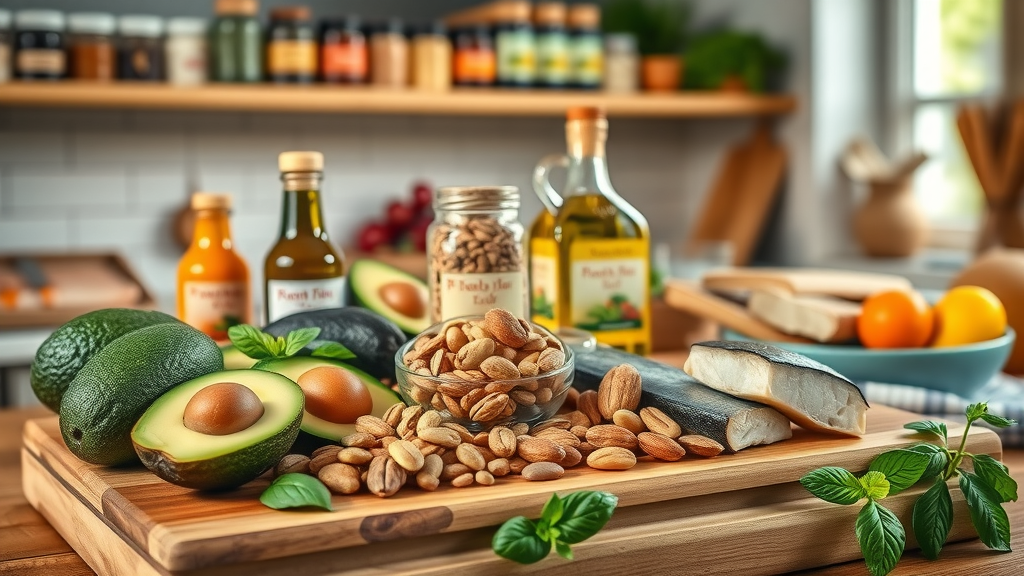
The DASH Diet: A Proven Approach
What is the DASH Diet?
The Dietary Approaches to Stop Hypertension (DASH) diet emphasizes whole foods and is designed to help manage blood pressure. It focuses on fruits, vegetables, whole grains, and low-fat dairy, making it a fantastic option for those aiming for a healthy eating heart.
Benefits of the DASH Diet for Heart Health
- Reduces Blood Pressure: Helps in lowering both systolic and diastolic blood pressure.
- Improves Cholesterol Levels: Supports better lipid profiles.
- Aids Weight Management: Encourages healthy weight loss through nutritious food choices.
| DASH Diet Components | Recommended Servings |
|---|---|
| Fruits | 4-5 servings/day |
| Vegetables | 4-5 servings/day |
| Whole Grains | 6-8 servings/day |
| Lean Proteins | 2 or fewer servings/day |
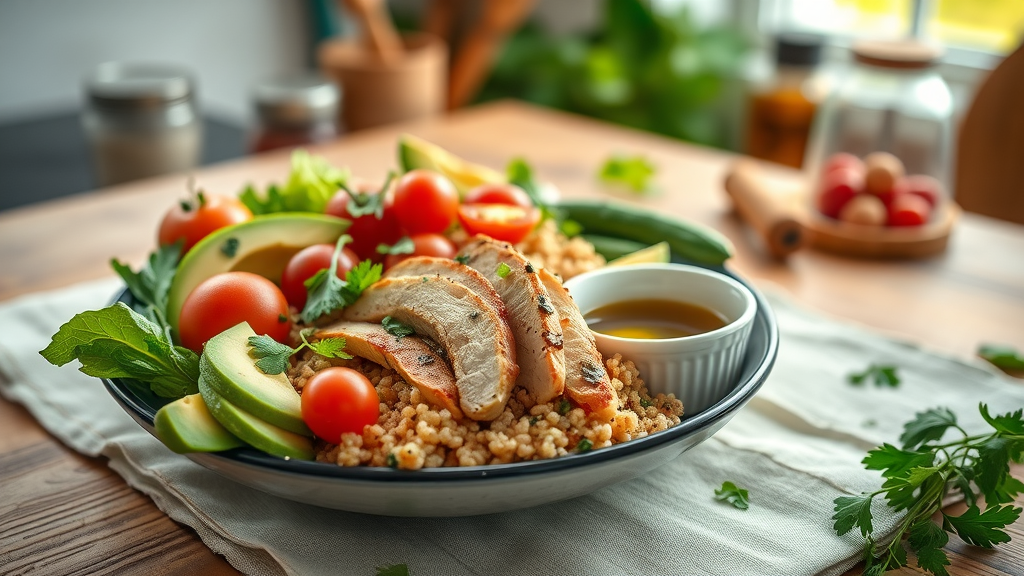
Foods to Include for a Heart-Healthy Diet
Fruits and Vegetables: The Cornerstone
Incorporating a variety of fruits and vegetables into your daily meals is vital for a healthy eating heart. They provide essential nutrients, fiber, and antioxidants that combat heart disease.
Whole Grains and Lean Proteins
Whole grains like quinoa, brown rice, and oats are excellent choices, providing fiber that helps lower cholesterol. Lean proteins such as chicken, fish, and plant-based sources like lentils are crucial for muscle repair and overall health.
Healthy Fats: Olive Oil and Nuts
Including healthy fats in your diet is essential. Olive oil and a variety of nuts provide heart-healthy omega-3 fatty acids that reduce inflammation and lower the risk of heart disease.
Foods to Include:
- Fruits: Berries, apples, oranges
- Vegetables: Leafy greens, carrots, bell peppers
- Whole Grains: Brown rice, oats, whole wheat bread
- Lean Proteins: Chicken breast, fish, beans
- Healthy Fats: Olive oil, avocados, nuts

Foods to Limit in Heart Health
Trans Fats and Saturated Fats
Trans fats, commonly found in fried and processed foods, can significantly increase the risk of heart disease. Saturated fats from red meat and full-fat dairy should also be limited.
Salt and Added Sugars
Excessive salt intake can lead to high blood pressure, while added sugars contribute to obesity and diabetes. It’s vital to monitor your intake of both.
Processed Foods and Their Impact
Highly processed foods often contain unhealthy fats, excess sodium, and added sugars. Limiting these can significantly improve heart health.
Foods to Limit:
- Trans Fats: Fried foods, baked goods
- Saturated Fats: Fatty cuts of meat, butter
- Salt: Processed snacks, canned soups
- Added Sugars: Sweetened beverages, desserts
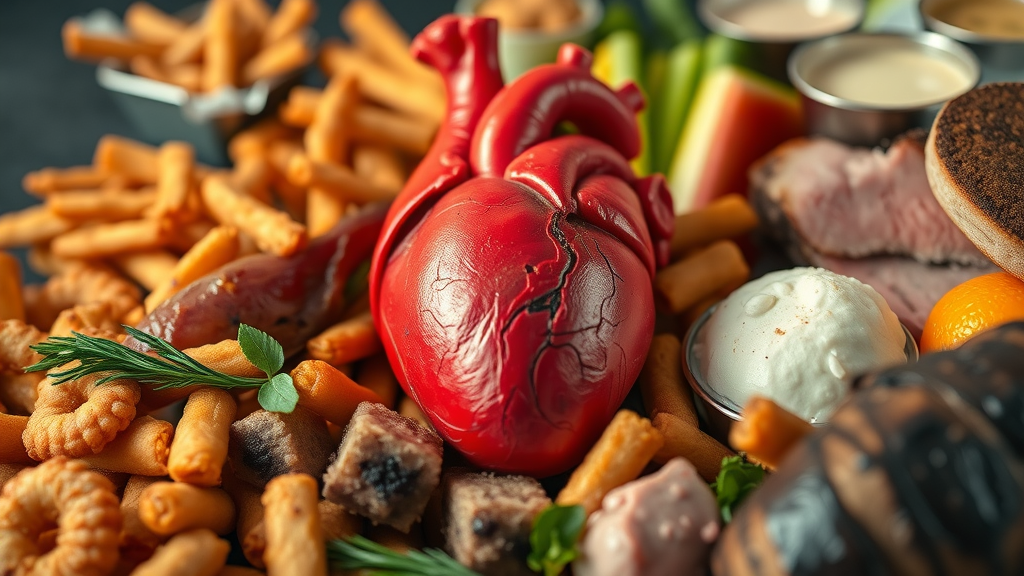
Practical Tips for Healthy Eating
Smart Shopping Tips
Adopting a healthy eating heart lifestyle begins at the grocery store. Here are some tips to make smart choices:
- Plan Meals Ahead: Create a shopping list based on your meal plan.
- Choose Fresh: Opt for fresh produce over processed options.
- Read Labels: Look for products low in sodium and added sugars.
Meal Preparation Strategies
Meal prep can save time and help you stick to your heart-healthy eating plan.
- Batch Cooking: Prepare meals in advance.
- Healthy Snacks: Keep heart-friendly snacks like fruits, nuts, and yogurt on hand.
- Portion Control: Use smaller plates to encourage appropriate portion sizes.

The Importance of Regular Physical Activity
How Exercise Supports Heart Health
Regular physical activity is crucial for a healthy eating heart. Exercise helps improve cardiovascular fitness, reduces blood pressure, and strengthens the heart muscle.
- Aim for 150 Minutes: Engage in moderate-intensity aerobic activity each week, such as brisk walking or cycling.
- Incorporate Strength Training: Include muscle-strengthening activities on two or more days a week.
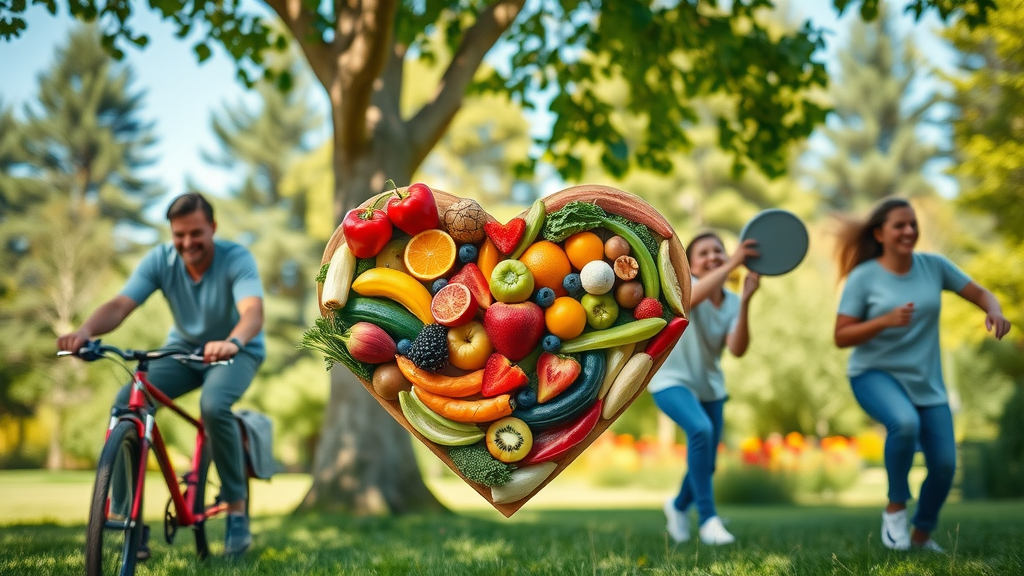
Monitoring and Maintaining Heart Health
Regular Health Check-ups
Regular check-ups with your healthcare provider can help monitor heart health. Be proactive in managing risk factors such as high blood pressure and cholesterol levels.
Understanding Blood Pressure and Cholesterol Levels
Knowing your numbers is essential. Keep track of:
- Blood Pressure: Aim for less than 120/80 mmHg.
- Cholesterol Levels: Regularly check your LDL (bad) and HDL (good) cholesterol.
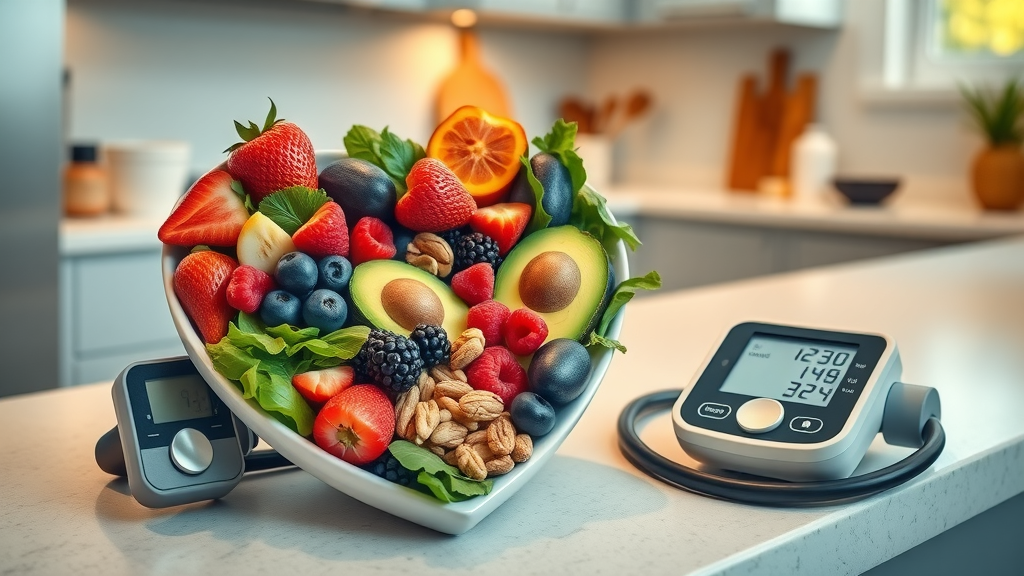
The Connection Between Diet and Heart Disease
Risk Factors for Heart Disease
Several risk factors contribute to heart disease, including:
- High blood pressure
- High cholesterol
- Obesity
- Sedentary lifestyle
How Healthy Eating Reduces Risks
Healthy eating can significantly lower the risk of heart disease by:
- Reducing cholesterol levels
- Managing blood pressure
- Promoting a healthy weight
Key Risks:
- Dietary Choices: Poor diet can lead to obesity and diabetes.
- Lifestyle Factors: Smoking and lack of exercise compound these risks.
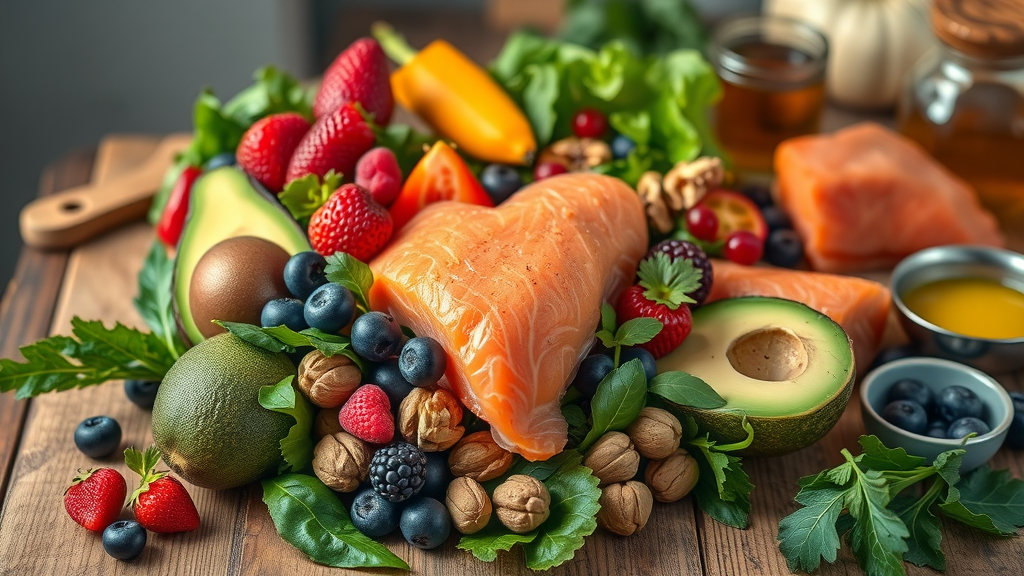
Incorporating Healthy Eating into Your Lifestyle
Creating a Sustainable Eating Plan
To make healthy eating a habit, create a plan that’s sustainable for you. Incorporate your favorite heart-healthy foods and set realistic goals.
Making Healthy Choices in Social Settings
When dining out or attending events:
- Choose Wisely: Opt for grilled over fried options.
- Control Portions: Share meals or ask for smaller portions.
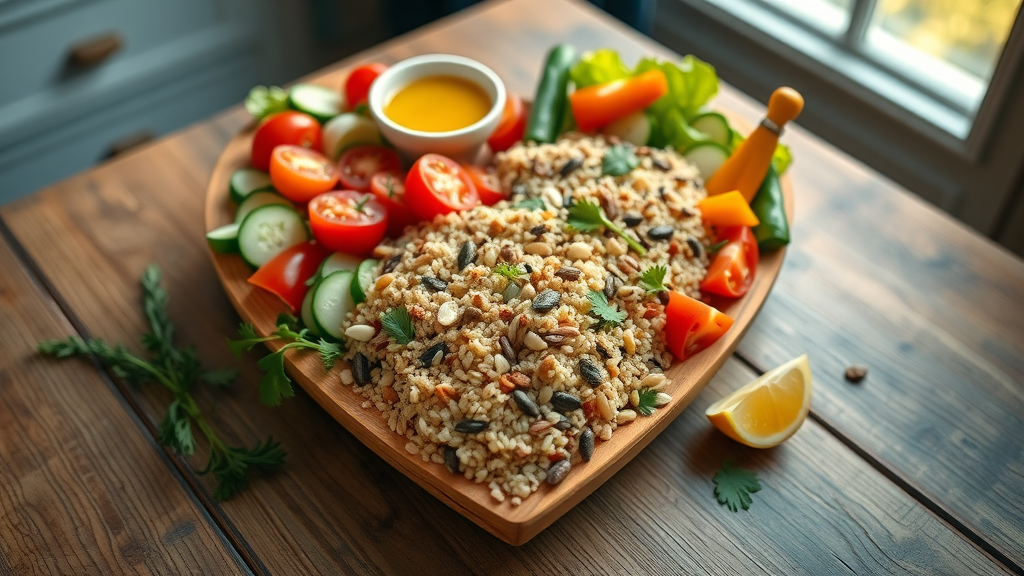
Conclusion: A Life of Healthy Eating for Heart Health
Key Takeaways
- Prioritize Fruits and Vegetables: They are essential for heart health.
- Limit Unhealthy Fats: Focus on unsaturated fats while avoiding trans and saturated fats.
- Follow the DASH Diet: A great approach to lower blood pressure and improve heart health.
- Stay Active: Regular exercise is vital for maintaining a healthy heart.
- Monitor Your Health: Regular check-ups are crucial for managing heart health.

By embracing these principles, you can pave the way toward a healthier heart and a more vibrant life. Remember, small changes today can lead to significant health benefits tomorrow!
Feel free to ask any questions or clarify any topics discussed in this article!
 Add Row
Add Row  Add
Add 





 Add Row
Add Row  Add
Add 
Write A Comment